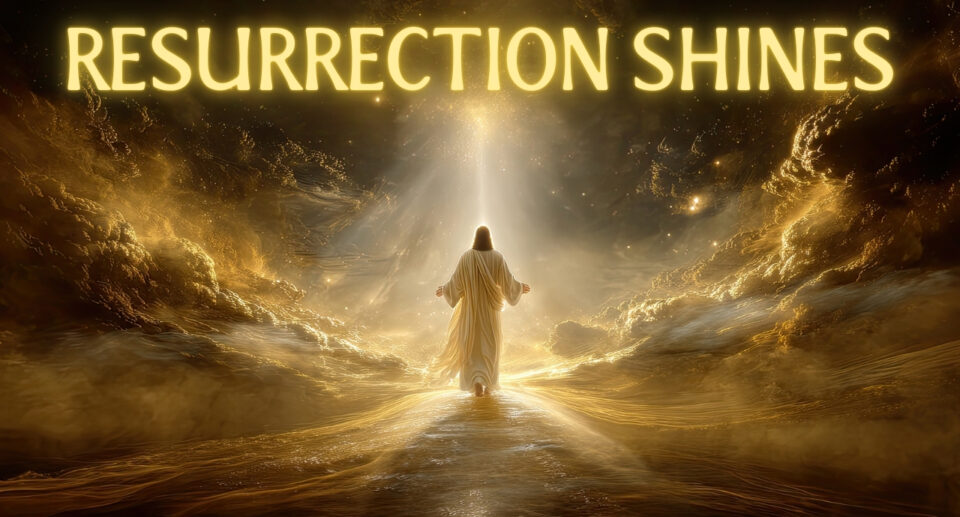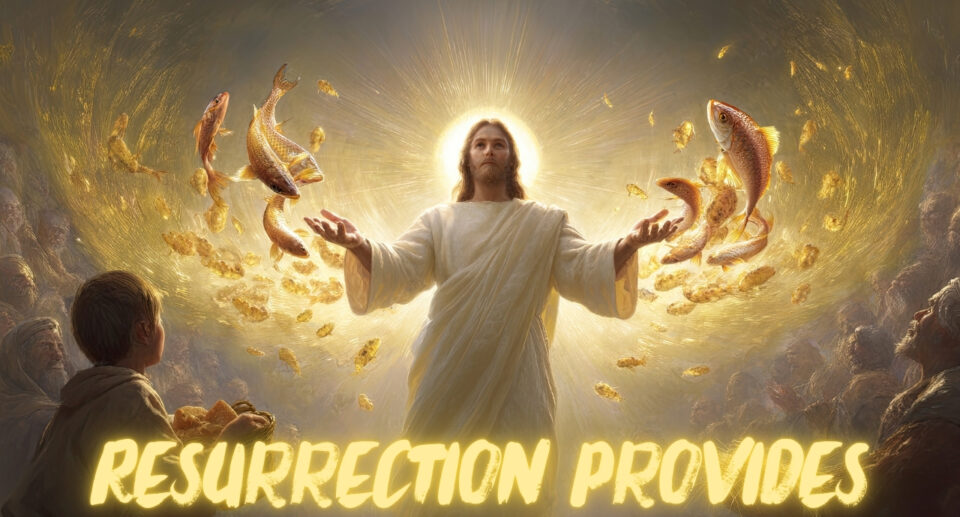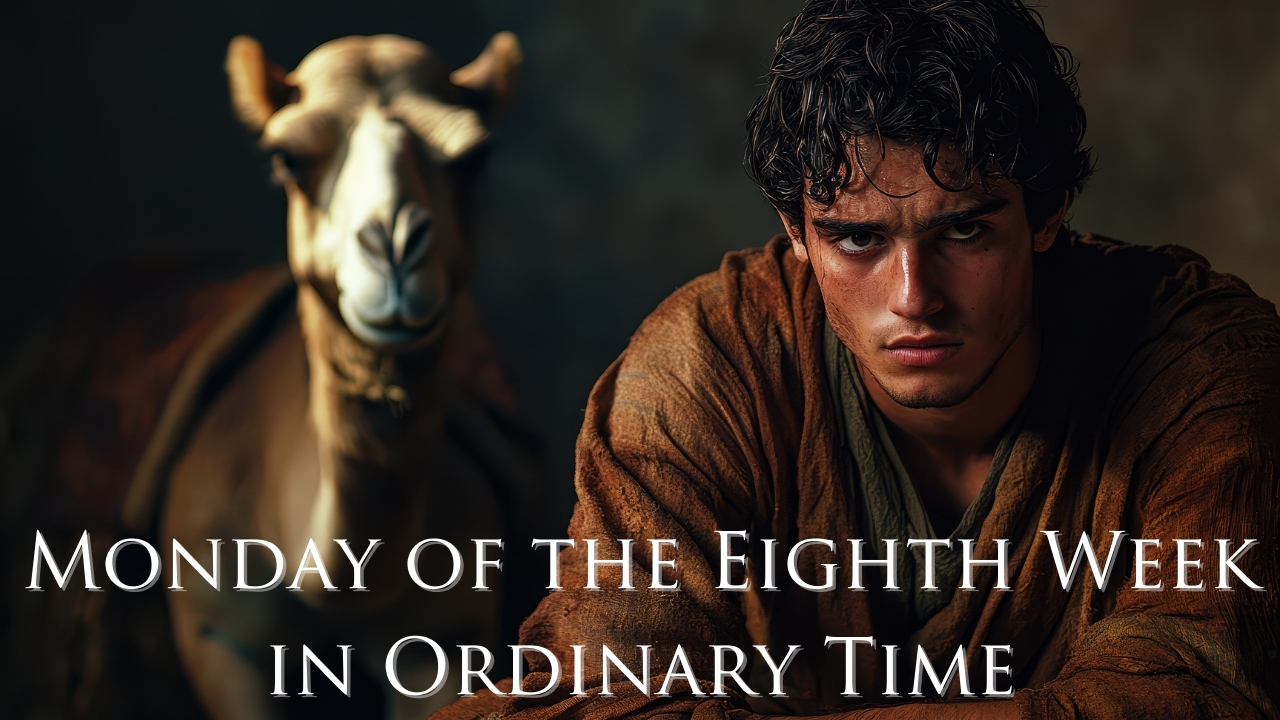The Courage to Be Unqualified | Daily Readings | May 3, 2025

Philip calculated exactly why feeding thousands wouldn’t work. James was so unremarkable they called him “the Less.” Yet these same men transformed the world. Discover how resurrection specifically works through your limitations rather than despite them.
Through this reflection, you’ll discover:
- Why your inadequacies don’t disqualify you from significant impact
- How questions and confusion become necessary pathways rather than spiritual failures
- What transforms ordinary voices into extraordinary testimony
- Where your unique contribution might emerge from perceived limitations
Readings: 1 Corinthians 15:1-8; Psalm 19:2-3, 4-5; John 14:6-14
Timeline: 00:00 Introduction 00:45 Personal Application 03:30 Historical Insight 05:15 Practical Wisdom 12:40 Closing Challenge
Perfect for anyone feeling too ordinary, too confused, or too inadequate to make significant spiritual contribution, yet hungry to find authentic purpose beyond religious performance.
#CatholicDailyReadings #CourageToBeUnqualified #ResurrectionPower
The Courage to Be Unqualified
If the early church had used modern hiring practices, Philip and James would never have made the cut.
Philip – analytical to a fault, constantly calculating why things wouldn’t work, perpetually missing the profound while fixating on the practical.
James “the Less” – so unremarkable the gospel writers barely mention him, distinguished primarily by what he wasn’t: not James the Greater, not James the brother of Jesus. Just… less.
Yet today, we celebrate their feast. Not despite their limitations but because of how resurrection transformed those very limitations into unique contributions that still influence us twenty centuries later.
Their story destroys our most toxic spiritual myth – that impact requires impressive qualifications. That significant contribution demands spectacular gifting. That world-changing witness comes from flawless understanding.
The readings today shatter this illusion. They reveal something far more liberating – that resurrection power works specifically through ordinary people who recognize their inadequacy yet offer it anyway.
Consider what these two men initially brought to the table:
Philip once calculated exactly how much it would cost to feed thousands – eight months’ wages – only to highlight why it couldn’t be done. A spiritual accountant focused on scarcity rather than possibility.
James remained so unremarkable throughout the gospels that we know almost nothing about him from scripture itself. Tradition alone tells us he later led the Jerusalem church – a stunning transformation for someone initially considered “less.”
Yet something extraordinary happened. These same men eventually influenced more people than Jesus personally encountered during his ministry. They reached farther geographically than he traveled. They extended his impact longer temporally than his three years of public work.
How does this happen? And more importantly, how might it happen through your life?
The answer isn’t self-improvement or religious performance but surrender to resurrection power that specifically transforms limitations into channels for unique contribution.
This explains why Paul focused obsessively on resurrection in today’s first reading. Not as theological doctrine but as witnessed reality that turned frightened followers into world-changing witnesses. Not as religious concept but as catalyzing encounter that transformed ordinary voices into extraordinary testimony.
What does this mean for us?
First, it destroys the qualification game. The endless measuring of spiritual resumés that leaves us feeling perpetually inadequate. The constant comparison that suggests others are more equipped, more knowledgeable, more gifted than we are.
Philip and James demolish this myth through their very ordinariness. Their impact flows not from impressive qualifications but surrendered inadequacy. Not from flawless understanding but wholehearted availability.
This offers tremendous freedom. Your perceived limitations – areas where you feel less gifted, less knowledgeable, less spiritual – don’t disqualify you from significant impact. They become the precise channels through which resurrection works most powerfully when surrendered.
Second, it recalibrates how we measure spiritual progress. The journey from doubt to conviction rarely follows straight lines. It involves questions, confusion, even spectacular misunderstandings like Philip’s in today’s gospel.
Yet these don’t indicate failure but necessary components of authentic growth. Philip’s confusion became pathway to profound revelation. His question revealed limitation but also created opening for transformation.
This grants permission to bring our actual questions rather than performing certainty we don’t feel. Authentic faith isn’t absence of doubt but willingness to bring those doubts directly to Christ as Philip did.
Third, it explains why seemingly ordinary people often create extraordinary impact. Not through exceptional talent but through encountering resurrection power that specifically transforms limitations into channels for unique contribution.
The gospel reveals this pattern when Jesus promises his followers will do “greater works” than he performed during his ministry. Not through superhuman ability but through resurrection life working through their particular limitations.
This isn’t mystical abstraction but historical reality. Philip and James eventually reached more people, influenced more cultures, and extended impact longer than Jesus personally accomplished during his human ministry.
But what does this mean practically? How does resurrection actually transform ordinary lives into extraordinary testimony today?
It begins with surrendering what you perceive as disqualifying. The areas where you feel inadequate, the questions that seem embarrassingly basic, the limitations that appear to restrict your contribution.
Philip’s story reveals that spectacular misunderstanding doesn’t disqualify you from significant purpose. His confusion about something seemingly obvious – asking to see God while looking directly at Jesus – didn’t prevent his eventual impact but created opening for transformation.
This offers profound freedom to anyone feeling spiritually inadequate. Your questions don’t indicate failure but necessary pathways to deeper understanding. Your limitations don’t restrict divine purpose but create channels for unique contribution when surrendered.
James’s story reinforces this truth. Being considered “less” doesn’t determine ultimate impact. His unremarkable beginnings gave no hint of his eventual leadership in Jerusalem, where tradition tells us even non-Christians respected his character and justice.
This speaks powerfully to anyone feeling overlooked or underestimated. Being deemed “less” doesn’t dictate your story’s conclusion. Resurrection specifically delights in transforming the underestimated into the essential.
Today’s psalm captures the stunning result when ordinary voices encounter extraordinary purpose: “Their message goes forth through all the earth.” What begins as confused questioning eventually reaches across continents, transcends cultures, transforms civilizations.
Not through impressive credentials but through surrendered inadequacy. Not through flawless understanding but through wholehearted availability to resurrection power that specifically transforms limitations into channels for unique contribution.
This feast of Saints Philip and James invites fresh surrender of what you perceive as disqualifying. Not to minimize limitations but to recognize them as potential channels for divine purpose.
Not by pretending to understand what confuses you, but by bringing those questions directly to Christ as Philip did.
Not by comparing yourself unfavorably to others, but by recognizing how James’s story reveals that being considered “less” doesn’t determine ultimate contribution.
Not by hiding perceived inadequacies, but by surrendering them as potential pathways for resurrection power to create unique impact through your particular voice.
For when resurrection transforms ordinary lives, questions that once revealed limitation become doorways to deeper understanding. People deemed unremarkable become essential to divine purpose. And voices that seemed inadequate become channels for testimony that continues influencing lives centuries after they’re gone.
This remains possible today – not through impressive qualifications but through ordinary people discovering the courage to be unqualified yet available for resurrection to transform their limitations into unique contribution that might continue speaking long after they’re gone






